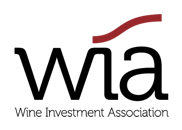Maximising Fine Wine Value: A Trustworthy Guide to Buying, Storing and Avoiding Fraud
In the world of fine wine, the journey from vineyard to glass is one of meticulous care, passion, and expertise. As an investment avenue, wine offers unique opportunities for growth, but it also comes with its challenges. To truly maximise the value of your wine collection and protect yourself from fraudulent practices, understanding the intricacies of buying and storage is paramount. Here's a trustworthy guide to help you navigate this sophisticated realm.
Authenticity and Provenance: Guarding Against Counterfeits
The rise in wine investment has unfortunately also seen a surge in counterfeit wines. These are bottles that are falsely labeled as rare or valuable vintages, deceiving unsuspecting buyers. To safeguard your investment:
-
Documented History
Always seek wines with a well-documented history. Original purchase receipts, storage records, and certificates of authenticity can be invaluable. -
Reputable Sources
Engage with established wine merchants or auction houses known for their integrity. If a deal seems too good to be true, it probably is. -
Professional Authentication
In cases of doubt, don't hesitate to use professional authentication services. It's a small price to pay for peace of mind.
Understanding Vintage Quality: The Backbone of Value
Not every wine is destined to appreciate in value. The quality of a vintage, determined by the year's climate and conditions, plays a pivotal role in its future worth. Research is your ally here. Learn about the best vintages and the regions they come from. Remember, rarity coupled with quality often leads to higher value.
Storing Wine In Bond: A Value-Driven Approach
Choosing to store your wine 'in bond' is a strategic decision that many savvy wine investors make. When wines are stored in bond, they are kept in a government-regulated bonded warehouse, ensuring optimal conditions and a range of benefits:
- Tax Advantages: Wines stored in bond are not subject to duty or Value Added Tax (VAT). These taxes only become payable if and when the wine is removed from the bonded warehouse, allowing investors to defer or even avoid these costs if the wine is sold while still in bond.
- Optimal Storage Conditions: Bonded warehouses are specifically designed to provide the perfect environment for aging wine. They maintain consistent temperature, humidity, and lighting conditions, ensuring the wine matures perfectly.
- Provenance Assurance: Wines stored in bond have a clear chain of custody, enhancing their provenance. This traceability can significantly increase the wine's value, as buyers are assured of its authenticity and optimal storage history.
- Ease of Trade: Wines in bond are often easier to sell, especially to international buyers. The in-bond status can simplify the transaction process and reduce associated costs.
By storing wine in bond, investors not only ensure the best conditions for their valuable assets but also position themselves advantageously in the global wine market.
Beware of Quick Sales and Flashy Marketing
The wine market has its share of unscrupulous sellers looking to make a quick buck. Be wary of businesses that push for rapid sales, use aggressive marketing tactics, or offer prices that seem too good to be true. Trustworthy merchants understand the value of patience and authenticity in the wine world.
In Conclusion
Fine wine, when bought and stored with care, can be both a delightful passion and a rewarding investment. By being vigilant against fraudulent practices and prioritizing the wine's authenticity and storage conditions, you not only protect your investment but also contribute to upholding the integrity of this age-old tradition. Trust in the process, and let your wine's value, like its flavor, mature gracefully over time.
